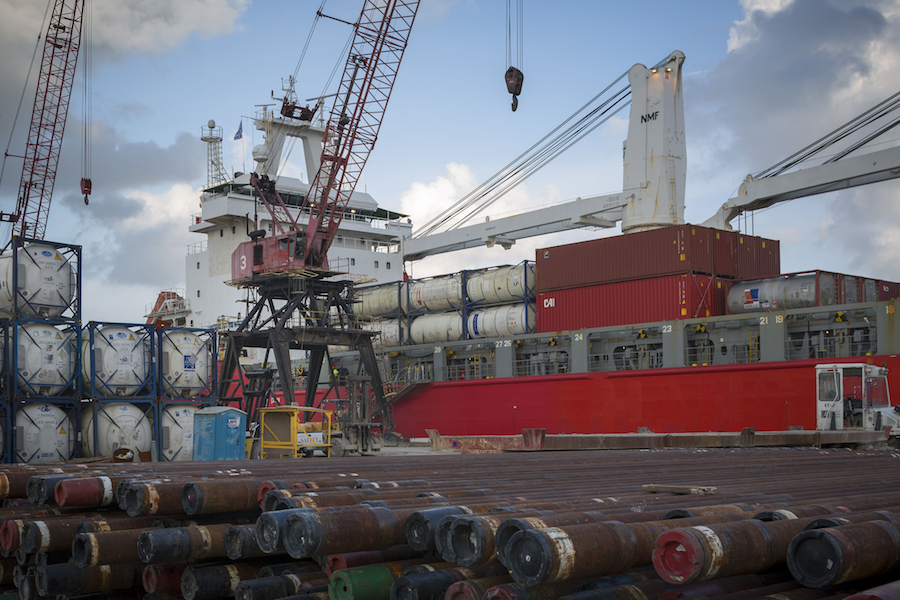
Breakbulk and heavy-lift cargo specialist Intermarine has completed accreditation to ISO 14001 and OHSAS 18001 standards, an achievement that the firm expects will “improve trust with stakeholders” and deliver “competitive advantage.”

“Few companies in the breakbulk and project cargo industries hold these certifications – by achieving this standard, we are reinforcing our commitment to safety, to our customers and most importantly to our employees. The certification process took a year and a half and involved participation from all Intermarine departments,” said Al Stanley, CEO of Intermarine.
The certification was overseen externally by a Lloyd’s Register representative.
Headquartered in Texas, Intermarine operates the largest U.S.-flag heavy-lift fleet, and controls Industrial Terminals in Houston, the busiest U.S. project cargo terminal. The firm operates a worldwide network of 20 offices and controls a fleet of more than 50 vessels with lifting capacity up to 1,400 tonnes.
What is ISO 14001?
ISO 14001 is an internationally accepted standard that outlines how to put an effective environmental management system in place. It is designed to help businesses remain commercially successful without overlooking environmental responsibilities. It can also help you to grow while reducing the environmental impact of this growth. An ISO 14001 system provides the framework to allow you to meet increasingly high customer expectations of corporate responsibility as well as legal or regulatory requirements.
ISO 14000 is a family of standards related to environmental management that exists to help organizations (a) minimize how their operations (processes, etc.) negatively affect the environment (i.e., cause adverse changes to air, water, or land); (b) comply with applicable laws, regulations, and other environmentally oriented requirements, and (c) continually improve in the above.
ISO 14000 is similar to ISO 9000 quality management in that both pertain to the process of how a product is produced, rather than to the product itself. As with ISO 9000, certification is performed by third-party organizations rather than being awarded by ISO directly. The ISO 19011 audit standard applies when auditing for both 9000 and 14000 compliance at once.
The requirements of ISO 14001 are an integral part of the European Union‘s Eco-Management and Audit Scheme (EMAS). EMAS‘s structure and material requirements are more demanding, mainly concerning performance improvement, legal compliance, and reporting duties.

